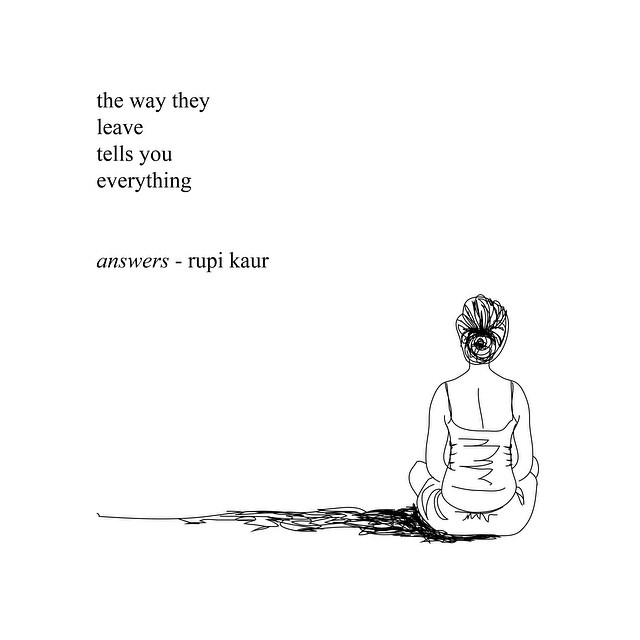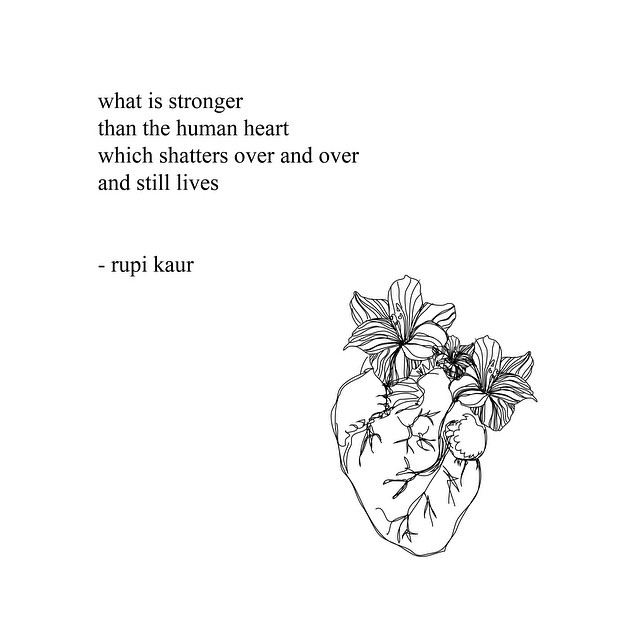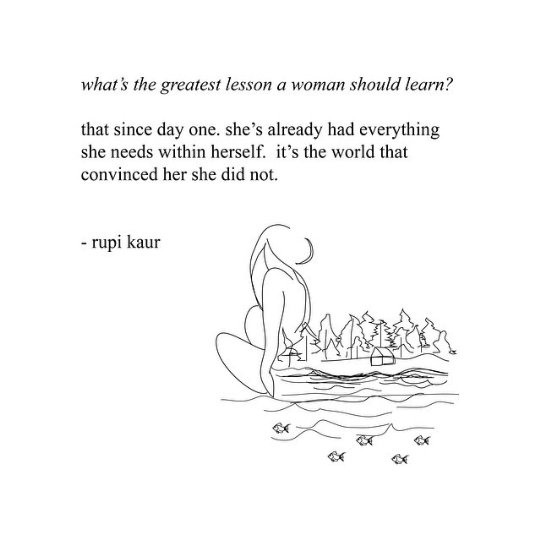Milk and Honey
Rupi Kaur is a Canadian author who gained fame on Instagram by posting her poems in a unique and engaging way; They are accompanied by beautifully simple illustrations. Her poems have transcended racial and cultural barriers because she addresses relatable topics. Rupi describes her book as “a collection of poetry about love, loss, trauma, abuse, healing, and femininity”. This compilation of poetry is broken into 3 parts; the hurting, the loving, the breaking, and the healing. Within these sections, she brings awareness to social issues like silencing women, alcoholic parents, selfish partners, relationships, and motherhood. I really enjoyed reading this book because it helped me process my emotions regarding romantic relationships and her poems on parental relationships brought up great conversations between me and my friends. I’ll highlight a few of my favorite poems.
The hurting:
In the hurting, Rupi shares a deeply painful and personal experience. From my understanding she or someone who knows was molested by a close family member. This is an issue that families and survivors silently deal with. Sharing the experience from the perspective of an abused child is a much needed narrative.
“The therapist places the doll in front of you, it is the size of the girls your uncles like touching. Point to where his hands were. You point to the spot between its legs, the one he fingered out of you like a confession. How’re you feeling? You pull the lump on your throughout with your teeth and say fine, numb really. ”
Another reoccurring topic in this part of the book was father-daughter relationships or lack there of. Through her poems, she perfectly articulates her expectations and disappointments with fathers that emotionally neglect their daughters.
“Every time you tell your daughter you yell at her out of love, you teach her to confuse anger with kindness, which seems like a good idea till she grows up to trust men who hurt her cause they look so much like you.”
The loving:
The way she describes love is refreshing because it doesn’t involve unhealthy attachment and dependency. She celebrates women loving themselves first before loving someone else. She gives examples of alternative ways of expressing love like through conversations and reading together (You know I loved that).
“I do not want to have you to fill the empty parts of me, I want to be full on my own, I want to be so complete, I could light a whole city and then I want to have you cause the two of us combined could set it on fire.”
The breaking:
This was my favorite part of the book because her poems touched me. Her advice on dealing with breakups gave me a lot of clarity and reassured me at the same time.
“You must not have to make them want you, they must want you themselves”
“Don’t mistake salt for sugar, if he wants to stay he will, it’s that simple”
The healing:
The healing is a heartwarming conclusion to the book. Rupi brings everything full circle by providing advice and advocating for an appreciation for women’s natural femininity. She makes it clear that a woman’s beauty is shown by her stretch marks, scars, and hairy armpits; not by the low standard placed on us by societies.
“I have what I have and I am happy. I’ve lost what I’ve lost and I am still happy”







